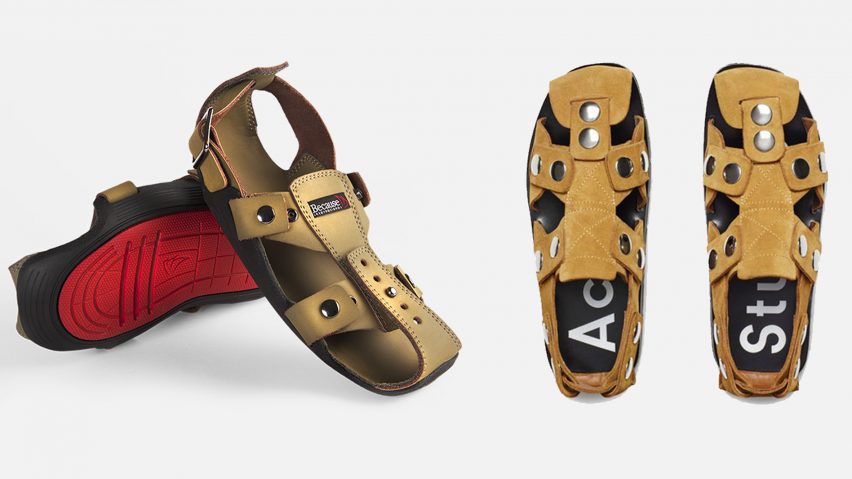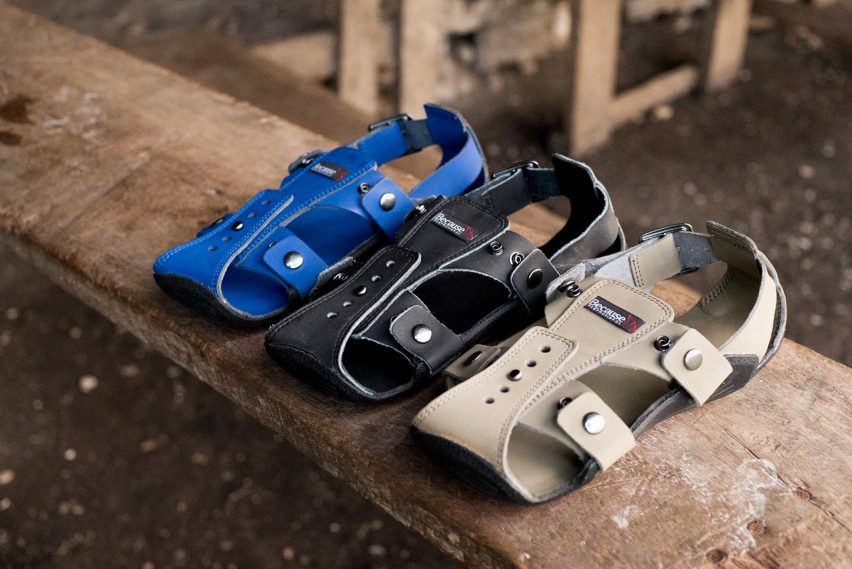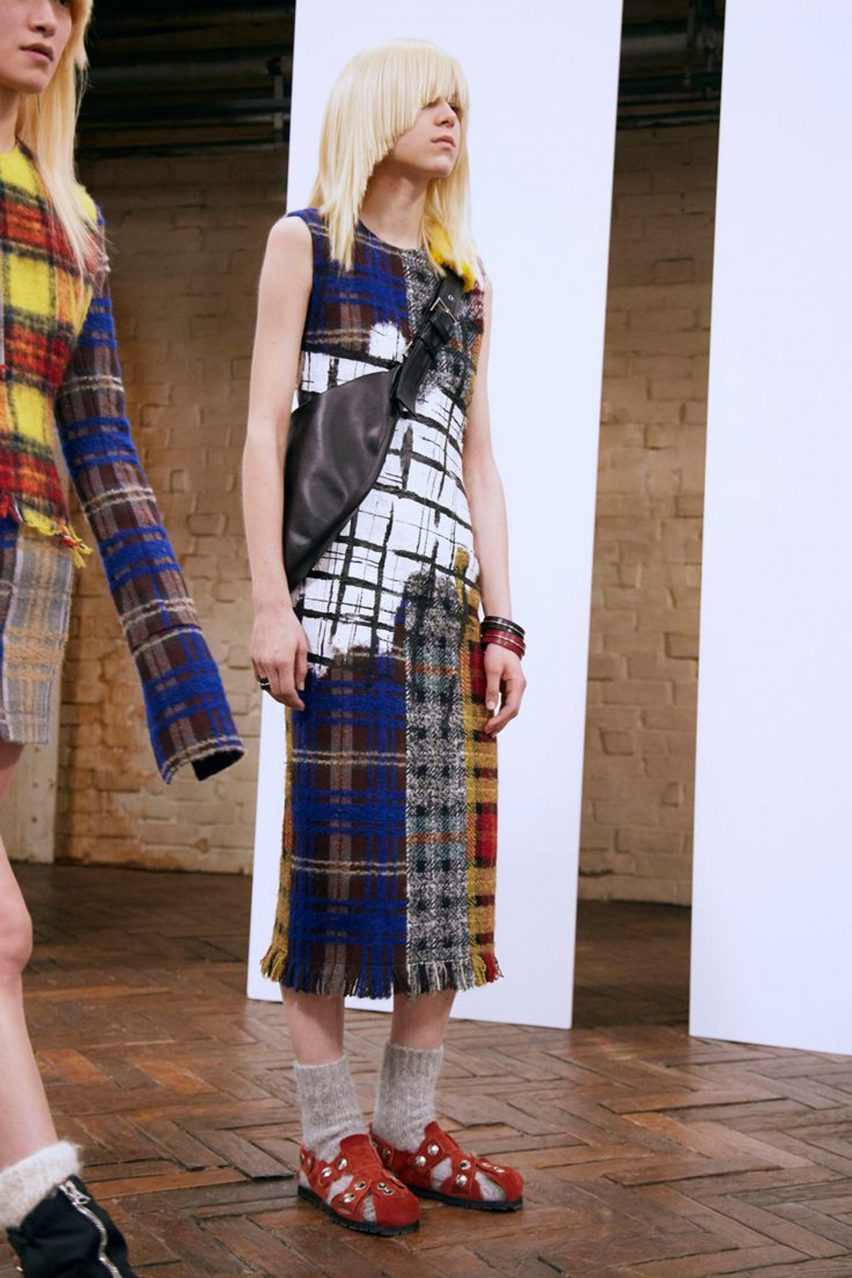
Acne Studios stops sales of "African-inspired" sandal after comparisons to charity design
Swedish fashion brand Acne Studios has stopped sales of a pair of its sandals following allegations they were copied from a shoe designed for children in developing countries.
The concerns were raised by online news outlet Vice when it ran a piece detailing the resemblance between the Swedish brand's "African-inspired" sandal and a design patented by charity The Shoe That Grows.

The Shoe That Grows is an American charity founded in 2008 by Kenton Lee. After working in a Nairobi orphanage, Lee noticed how small the children's shoes were for their feet and the problems this was causing.
In response, he created an adjustable sandal that can expand up to five shoe sizes to accommodate growing feet.
The shoes, which launched in 2013, are made up of strips of anti-bacterial synthetic material connected by a combination of metal punch holes and Velcro.
Since then, the company has donated thousands of pairs to children in developing countries and has also made the shoe available to the public, with each pair bought online paying for two further pairs to be donated.

Three years later, as part of its pre-fall 2016 show, Acne sent models down the catwalk wearing $400 (£320) shoes it later described on its website as "African inspired".
The sandals feature strappy uppers and metal adornments that Vice describes as "almost identical".
The magazine went to two shoe experts – one who runs online blog The Shoe Consultant and a second who wished to remain anonymous. Both recognised the "strikingly similar" appearance and noted the timeline of the Acne shoe's release in relation to The Shoe That Grows.
"The prototype was out in cyberspace in 2013, and Acne showed these shoes for their pre-fall '16 catwalk show, which was January 2016," said the anonymous expert. "In terms of a timeline, for the resort show I can imagine they would have been working on that winter of 2015."
"I think in terms of design the images really say it all – even the stitching is the same."
Vice then reached out to Acne for comment. After initially claiming that they "don't believe [the shoe] was inspired by the Children's Charity you mentioned below", Vice relayed the views of their footwear experts – prompting the brand to halt sales for "further investigation".

"Thank you for bringing this to our attention," said Acne's statement. "We do see the similarities, which was not intentional. We have decided to stop selling the shoe for further investigation."
The shoe's page on the Acne website has since been replaced with a 404 "page not found" message.
The wider design industry is no stranger to counterfeit and copycat products. In 2014, the UK government was attacked by design brands including Vitra, Artek and Flos for delaying the implementation of a law that would ban the sale of copies of their furniture and lighting products.
The law has now come into force, although intellectual property lawyers have argued the changes might not give designers the protections they expect.